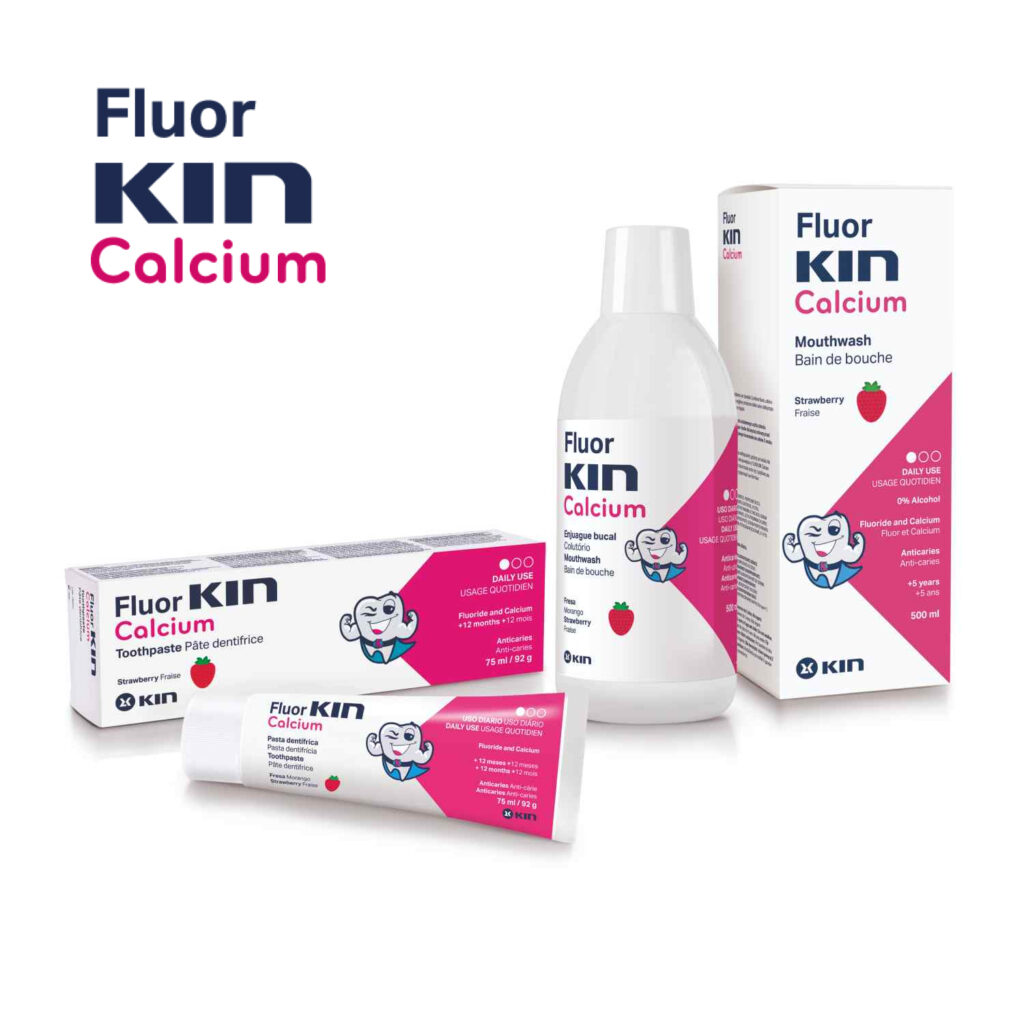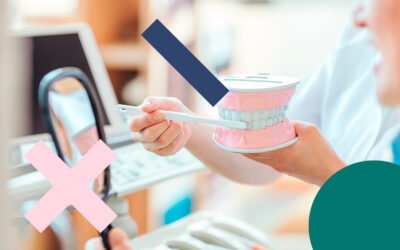Calcium is one of the fundamental minerals for the health of our body and the development of many of the structures that compose it. Surely you have heard about the importance of calcium for teeth and bones, but how exactly does the body assimilate this mineral from the diet?
Along with good oral hygiene, dental experts recommend following a balanced diet rich in all kinds of nutrients. Calcium in particular is an essential mineral for teeth, and its deficiency could be related to many common oral problems.
What is calcium and why is it so important for dental health?
Calcium is one of the most abundant minerals in the human body. Its presence is more than evident in the skeleton, since it is part of bone tissue, cartilage tissue, and also of others such as muscles or dental enamel.
Where does this calcium come from? Most of it comes from the diet, specifically from foods rich in this mineral such as dairy products, nuts, seeds, fish, shellfish, legumes and vegetables.
In a healthy and balanced diet it is necessary to include foods rich in calcium, as well as other minerals and vitamins involved in its correct assimilation. Only in this way is it possible to store and replenish the amount of calcium needed by the body to maintain optimal health and allow the different tissues to fulfill their function.
And how does all this affect the health of the mouth and teeth? Well, precisely in the formation and maintenance of such important structures as the maxillary bone, the mandibular bone, the dental pieces and the enamel that covers them for their protection.
How are teeth remineralized?
In addition to the bones, the teeth are another of the organs of the body with the highest calcium content. Calcium is not only found inside the tooth, but also as part of the enamel, the tissue that protects it against the attack of various external agents.
On a daily basis, tooth enamel can be affected by mechanical wear and attack by the oral bacteria responsible for tooth decay. Through a process called demineralization, the enamel becomes thinner and can be broken down or destroyed to a large extent.
To prevent this from happening, the opposite effect, remineralization of the teeth, must be achieved. In a natural way, calcium and phosphates in the saliva are deposited in the damaged areas, recovering the protective layer that the tooth has lost.
In this process of remineralization of the tooth comes into play the fluoride, another very important mineral in the deposition and maintenance of calcium in the body. In addition to the fluoride found in food, the use of fluoride toothpastes and mouthwashes is a complement to take into account for the protection of tooth enamel.
How does calcium pass to the teeth and bones?
Calcium is involved in many of the most important processes that occur in the human body. It aids in muscle contraction, enables proper blood clotting when wounding or bleeding occurs, and is also a nerve impulse stimulator.
But its role is undoubtedly most evident in bone and dental tissue. In order for the body to obtain the amount of calcium necessary to maintain this tissue, it is of utmost importance to include in the diet foods that ensure a correct supply.
From food, and thanks to digestion, calcium passes into the bloodstream and from there to the various tissues of the body. Vitamin D favors the absorption of calcium in the intestine and therefore its incorporation and that of other minerals in the bone tissue, keeping it strong and healthy.
Calcium in infancy
In adulthood, mineral turnover in the bones is minimal. Bone tissue hardly loses any calcium and, therefore, it is not necessary to constantly replenish it. As we grow older, this process enters a kind of resting state, and the most important thing is simply to maintain the correct bone density.
But what happens in the infant growth stage? Children's skeleton and teeth are constantly growing. It is for this reason that calcium is an essential and indispensable mineral in the diet of children.
The recommended calcium intake increases throughout life from minimum values in the newborn, to a maximum peak in adolescence, and then remains stable when reaching adulthood.
From the eruption of milk teethcalcium is one of the key nutrients for oral health, from the eruption of milk teeth, during tooth replacement in children, and the subsequent formation of the permanent dentition.
For children's children's oral care there are specific hygiene products that adapt to the needs of children at each stage, helping at the most critical moments when the risk of dental caries formation is higher.
Signs of calcium deficiency in teeth
Hypocalcemia is known as calcium deficiency in the body. It can appear at any age, but it is especially delicate during childhood and in old age, when the body does not have sufficient capacity to regulate the deposits of this mineral. Maintain a healthy mouth with daily care routines.
Discover our products for daily oral care

Calcium deficiency is associated with a series of symptoms that manifest themselves mainly in the mouth. The first to be affected by hypocalcemia are the teeth.The main reason for this is a higher probability of suffering caries, weak tooth enamel, sensitivity, or even swallowing problems.
Before reaching this point, where bones, teeth, and especially tooth enamel are affected, we can intervene in different ways, ensuring an adequate level of calcium.
What is good for increasing calcium in teeth?
There are two routes of calcium supply for teeth that are important in oral health care. On the one hand, there is dietary calcium, the most important, which ensures strong, healthy teeth and good jaw bone development.
To this end, it is important to follow a diet rich in this mineral and in vitamin D. In addition to milk, cheese, yogurt and other derivatives, it is interesting to eat fruits, vegetables, nuts and legumes, which improve the overall supply of nutrients.
In the case of young children, we highlight another way of providing calcium, such as the use of oral hygiene products that strengthen the enamel. The FluorKIN FluorKIN Calcium line is indicated for the prevention of dental caries from the eruption of the first teeth and throughout childhood.
During the critical period of the formation and development of primary and permanent teeth, FluorKIN Calcium provides the calcium and phosphorus that tooth enamel needs to strengthen and activate the natural remineralization process.
Calcium is also found in saliva and helps to neutralize acids that damage the enamel, achieving a complete effect to keep the mouth completely healthy.


 What to consider when choosing the best electric toothbrush?
What to consider when choosing the best electric toothbrush? How to relieve pain with newly placed braces?
How to relieve pain with newly placed braces? How to keep your breath fresh?
How to keep your breath fresh?



